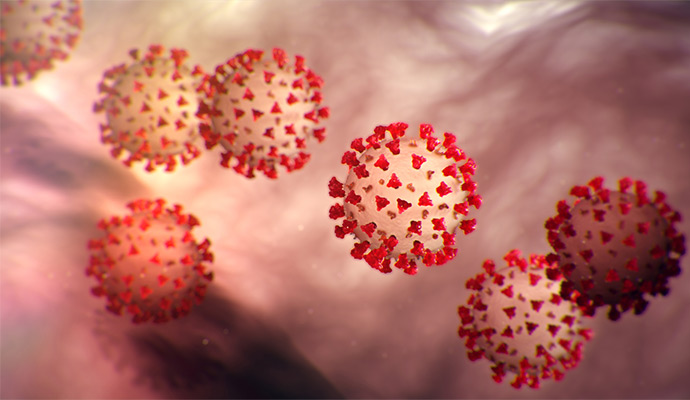Predictive Analytics Finds Genetic Biomarkers Tied to Severe COVID-19
Researchers discovered a specific genetic biomarker that can determine the severity of COVID-19 infection with the use of predictive analytics.

Source: CDC
- Using predictive analytics, the University of Colorado School of Medicine and UCHealth University of Colorado Hospital scientists have found specific genetic biomarkers that show who is infected with COVID-19 and determine who could develop a severe infection.
“I think this study is a tremendous proof-of-concept in the realm of COVID-19 testing, one that can be applied to other diseases,” the study’s lead author and professor at the CU School of Medicine, Kathleen Barnes, PhD, said in a press release. “It’s a major move forward in the world of precision medicine.”
Researchers suggest that specific signals from a process called DNA methylation differ in those infected and those not infected with COVID-19. Additionally, they can predict the severity of the disease in the early stages.
DNA methylation is an epigenetic signaling tool that cells use to turn genes off. According to researchers, any mistakes in the process can cause a variety of diseases. Barnes said the analyzing these signals could assist with COVID-19 testing.
Many COVID-19 antigen or rapid tests are dependent on viral strains and possess high false-negative rates. Additionally, the tests do not predict if the virus is viable and replicating, nor do they predict clinical outcomes.
Pre-symptomatic patients could test negative for COVID-19 while patients who have recovered from the illness may still test positive despite no longer being infected.
“Accurate diagnostics are urgently required to control continued communal spread, to better understand host response, and for the development of vaccines and antivirals,” the study said. “Identification of which SARS-CoV-2 infected patients are most likely to develop severe disease would enable clinicians to triage patients via augmented clinical decision support.”
To predict clinical outcomes, researchers analyzed the epigenome in blood samples from people with and without COVID-19. The team then customized a tool from Illumina called the Infinium Methylation EPIC array to improve immune response detection. The researchers then examined data and peripheral blood samples from 164 COVID-19 patients and 296 control patients.
The peripheral blood DNA samples were from patients at UCHealth who tested for COVID-19 beginning in March of 2020. The majority of the blood specimens were collected in the University of Colorado Emergency Medicine Specimen Bank under the direction of study co-author Andrew Monte, MD, PhD, and passed on to the Colorado Anschutz Research Genetics Organization (CARGO).
The additional specimens were from patients who consented to the University of Colorado COVID-19 Biorepository. The team then discovered specific genetic markers of COVID-19 along with indications of how severe the disease could be.
“These signals of disease progression were present from the initial blood draw when first walking into the hospital,” the study said. “Together, these approaches demonstrate the potential of measuring the epigenome for monitoring SARS-CoV-2 status and severity.”
According to Barnes, the predictive analytic method could improve how providers test for COVID-19.
“We are exploring how this platform could add value to the COVID diagnostic world,” Barnes said. “We think it adds value to knowing what patients develop more serious disease. This could tell you if you could ride out the infection or if it is likely to get worse.”
